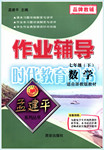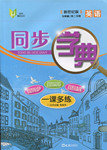题目内容
—Is it convenient for you to go shopping with me at eight tomorrow morning?
—I’m afraid not. I ______ then.
A. will having a meeting B. am about to have a meeting
C. am having a meeting D. will be having a meeting
练习册系列答案
 作业辅导系列答案
作业辅导系列答案 同步学典一课多练系列答案
同步学典一课多练系列答案
相关题目


 destroy all those things. Will we use our words to hurt or to heal? The choice is ours.
destroy all those things. Will we use our words to hurt or to heal? The choice is ours.